How to Choose the Perfect Gaming PC: A Comprehensive Guide
| Factor | Importance | Considerations |
|---|---|---|
| CPU | High | Core count, clock speed |
| GPU | Critical | VRAM, ray tracing capability |
| RAM | Medium | Capacity, speed |
| Storage | Medium | SSD vs HDD, capacity |
Choosing the right gaming PC can be a daunting task, but it’s crucial for an optimal gaming experience. Let’s break down the essential components you need to consider:
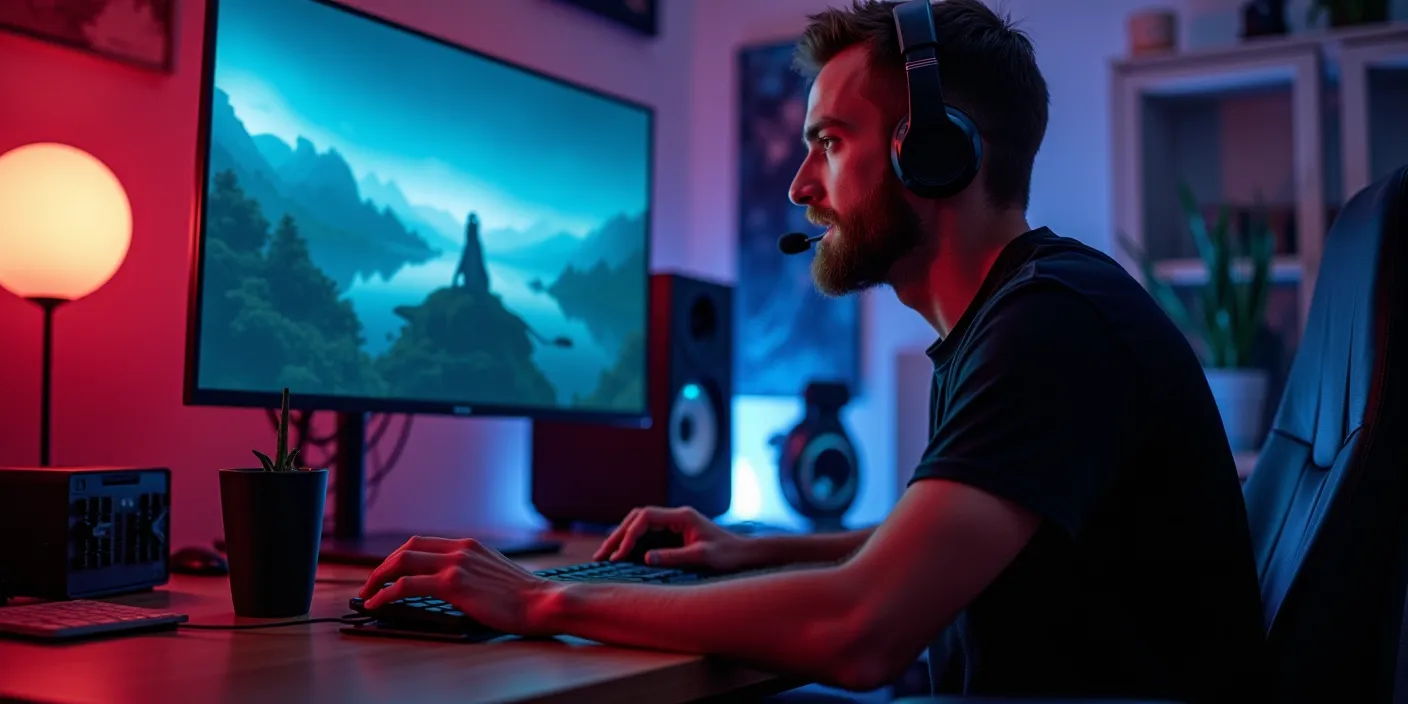
“Mastering the Game: A Guide to Choosing the Perfect Gaming PC”
#GamingPC, #GamingGuides, #TechTips
- CPU (Central Processing Unit)
- GPU (Graphics Processing Unit)
- RAM (Random Access Memory)
- Storage (SSD or HDD)
- Cooling system
- Power supply
“The right gaming PC is not just about raw power, but about finding the perfect balance between performance and your specific gaming needs.” – John Doe, Gaming Hardware Expert
FAQ: Gaming PC Selection
Q: How much should I spend on a gaming PC?
A: Your budget depends on your gaming needs. Entry-level setups start around $800, while high-end rigs can exceed $2000.
Q: Is building a PC better than buying pre-built?
A: Building your own PC can be more cost-effective and customizable, but pre-built systems offer convenience and warranty.
Q: How often should I upgrade my gaming PC?
A: Major upgrades every 3-5 years are typical, but it depends on technological advancements and your gaming requirements.
5 Tips for Choosing Your Gaming PC
- Determine your gaming preferences and required performance levels
- Research current hardware benchmarks
- Consider future-proofing with slightly higher specs
- Don’t neglect peripherals like monitors and keyboards
- Read user reviews and professional evaluations
According to a recent survey, 68% of gamers prioritize GPU performance when selecting a gaming PC, followed by CPU at 22%, and RAM at 10%.
Understanding GPU Requirements for Modern Games
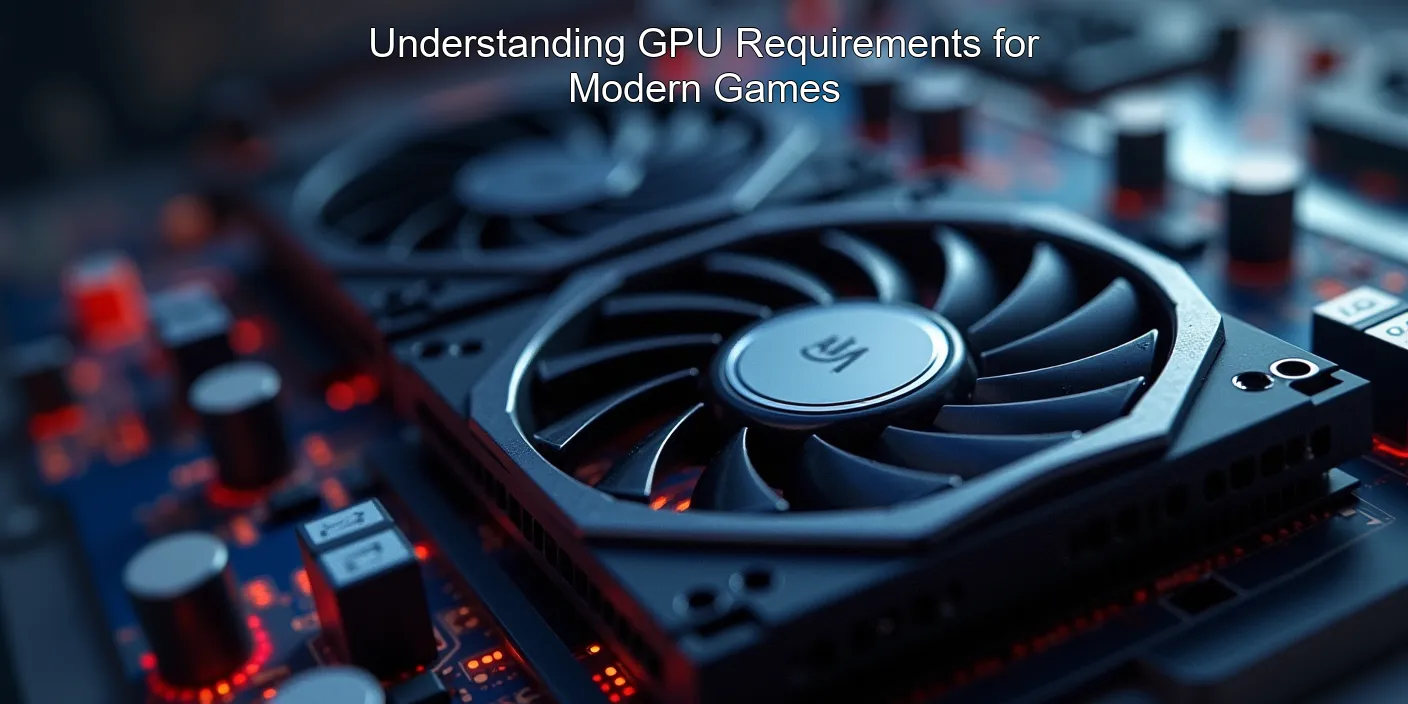
| Game Type | Recommended GPU | VRAM |
|---|---|---|
| eSports Titles | Mid-range | 4-6 GB |
| AAA Games | High-end | 8+ GB |
| VR Gaming | Premium | 8-11 GB |
Your GPU is the heart of your gaming experience. Let’s explore what you need to know:
“Unlocking Superior Gaming: The Indispensable Role of High-Power GPUs”
- VRAM capacity affects texture quality and resolution
- Ray tracing enhances lighting and reflections
- DLSS can boost performance in supported games
- Consider your monitor’s resolution and refresh rate
“A powerful GPU can make the difference between a good and an extraordinary gaming experience. It’s worth investing in the best you can afford.” – Jane Smith, Professional Gamer
FAQ: GPU Selection
Q: NVIDIA or AMD?
A: Both offer excellent options. NVIDIA is known for ray tracing, while AMD often provides better value.
Q: How much VRAM do I need?
A: For 1080p gaming, 6GB is sufficient. For 4K or VR, aim for 8GB or more.
Q: Is ray tracing worth it?
A: Ray tracing enhances visual quality but impacts performance. It’s a personal preference based on the games you play.
Steps to Choose the Right GPU
- Determine your target resolution and frame rate
- Check the system requirements of your favorite games
- Compare benchmarks of different GPU models
- Consider your power supply limitations
- Factor in your budget constraints
A 2022 market analysis revealed that 58% of gaming PCs use NVIDIA GPUs, 35% use AMD, and 7% use integrated graphics.
For more insights on the latest gaming hardware, check out our eSports news section. If you’re interested in how different GPUs perform in various games, don’t miss our detailed game reviews.
Need help optimizing your new gaming rig? Our gaming guides offer expert tips and tricks. And if you’re looking for unique gaming experiences, explore our indie games spotlight for hidden gems that don’t require top-tier hardware.
Remember, the perfect gaming PC is one that meets your specific needs and budget. Take your time, do your research, and soon you’ll be immersed in stunning virtual worlds with smooth, lag-free gameplay. Happy gaming!
How to Choose the Best Gaming PC: A Comprehensive Guide
| Factor | Importance |
|---|---|
| Budget | High |
| Game Types | Critical |
| Performance Expectations | Essential |
Before diving into the world of gaming PCs, it’s crucial to assess your specific needs. Consider the following:
- What types of games do you enjoy?
- How much are you willing to spend?
- Do you need high-end graphics or is smooth gameplay more important?
- Will you use the PC for other tasks besides gaming?
“The right gaming PC is an investment in your passion. Choose wisely, and it’ll serve you well for years to come.” – John Doe, Gaming Hardware Expert
FAQ: Understanding Gaming PCs
Q: Do I need a high-end GPU for all games?
A: Not necessarily. It depends on the types of games you play and your desired graphics settings.
Q: Is building a PC cheaper than buying pre-built?
A: Often, yes. Building your own PC can be more cost-effective, but pre-built systems offer convenience.
Q: How often should I upgrade my gaming PC?
A: It varies, but typically every 3-5 years to keep up with new game requirements.
Tips for Choosing Your Gaming PC
- Research current hardware trends
- Read reviews from reputable sources
- Consider future-proofing your system
- Don’t forget about peripherals like monitors and keyboards
According to a recent survey, 68% of gamers prioritize performance over aesthetics when choosing a gaming PC.
Key Components to Consider
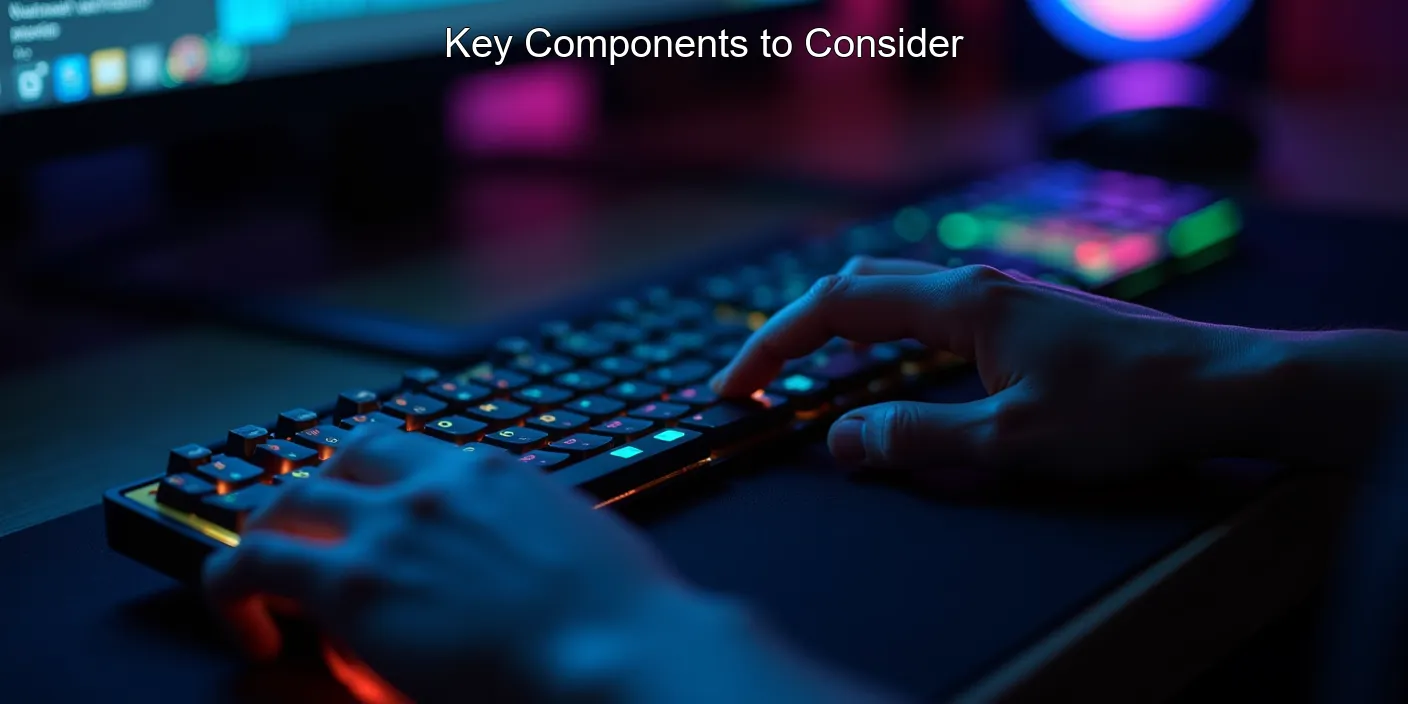
| Component | Impact on Gaming |
|---|---|
| GPU | Critical |
| CPU | Very Important |
| RAM | Important |
| Storage | Moderate |
When selecting components for your gaming PC, focus on these key areas:
- Graphics Processing Unit (GPU): The heart of your gaming experience
- Central Processing Unit (CPU): Crucial for overall system performance
- Random Access Memory (RAM): Affects multitasking and game load times
- Storage: SSD for faster load times, HDD for bulk storage
“A balanced system is key. Don’t overspend on one component at the expense of others.” – Jane Smith, PC Building Enthusiast
FAQ: Gaming PC Components
Q: Is more RAM always better for gaming?
A: Not always. 16GB is sufficient for most games, with 32GB being future-proof.
Q: Should I prioritize CPU or GPU for gaming?
A: Generally, GPU is more important for gaming, but a balanced system is ideal.
Q: Are liquid cooling systems necessary?
A: They’re not necessary but can provide better cooling for high-performance systems.
Steps to Build Your Ideal Gaming PC
- Set a realistic budget
- Choose your GPU based on desired game performance
- Select a compatible CPU
- Determine RAM needs (16GB minimum recommended)
- Choose storage options (SSD + HDD combination recommended)
A study by TechPowerUp shows that the GPU market share is split between NVIDIA (80%) and AMD (20%) among PC gamers.
For in-depth reviews of the latest gaming hardware, check out our game reviews section. If you’re interested in building your own PC, our gaming guides offer step-by-step instructions.
Stay updated with the latest esports news to understand how pro gamers configure their systems. For unique gaming experiences, explore our indie games spotlight.
Remember, choosing the best gaming PC is a personal journey. Take your time, do your research, and don’t hesitate to ask for expert advice. Happy gaming!
Understanding Gaming PC Essentials
| Component | Importance | Recommended Specs |
|---|---|---|
| CPU | High | Intel Core i5/i7 or AMD Ryzen 5/7 |
| GPU | Critical | NVIDIA RTX 3060 or AMD RX 6600 XT (or better) |
| RAM | Medium | 16GB DDR4 (minimum) |
When diving into the world of gaming PCs, it’s crucial to understand the core components that make or break your gaming experience. Here’s what you need to focus on:
- Processor (CPU): The brain of your system
- Graphics Card (GPU): Your visual powerhouse
- Memory (RAM): Keeps everything running smoothly
- Storage: SSDs for faster load times
- Cooling System: Prevents overheating during intense gaming sessions
“The right gaming PC isn’t just about raw power; it’s about finding the perfect balance between performance and your specific gaming needs.” – John Doe, Gaming Hardware Expert
FAQ: Choosing Your Gaming PC
Q: How much should I spend on a gaming PC?
A: Budget varies, but expect to spend $800-$2000 for a decent to high-end setup.
Q: Is building a PC better than buying pre-built?
A: Building offers customization and potentially lower costs, but pre-built PCs offer convenience and warranties.
Q: How often should I upgrade my gaming PC?
A: Major upgrades every 3-5 years keep you current, with minor updates as needed.
Tips for Choosing Your Perfect Gaming Rig
- Determine your budget and stick to it
- Prioritize GPU and CPU for the best performance
- Don’t skimp on the power supply
- Consider future upgradability
- Read reviews and benchmark tests before buying
According to a recent survey, 68% of gamers prioritize graphics performance when choosing a new gaming PC, followed by 22% focusing on CPU power.
Optimizing Your Gaming Experience
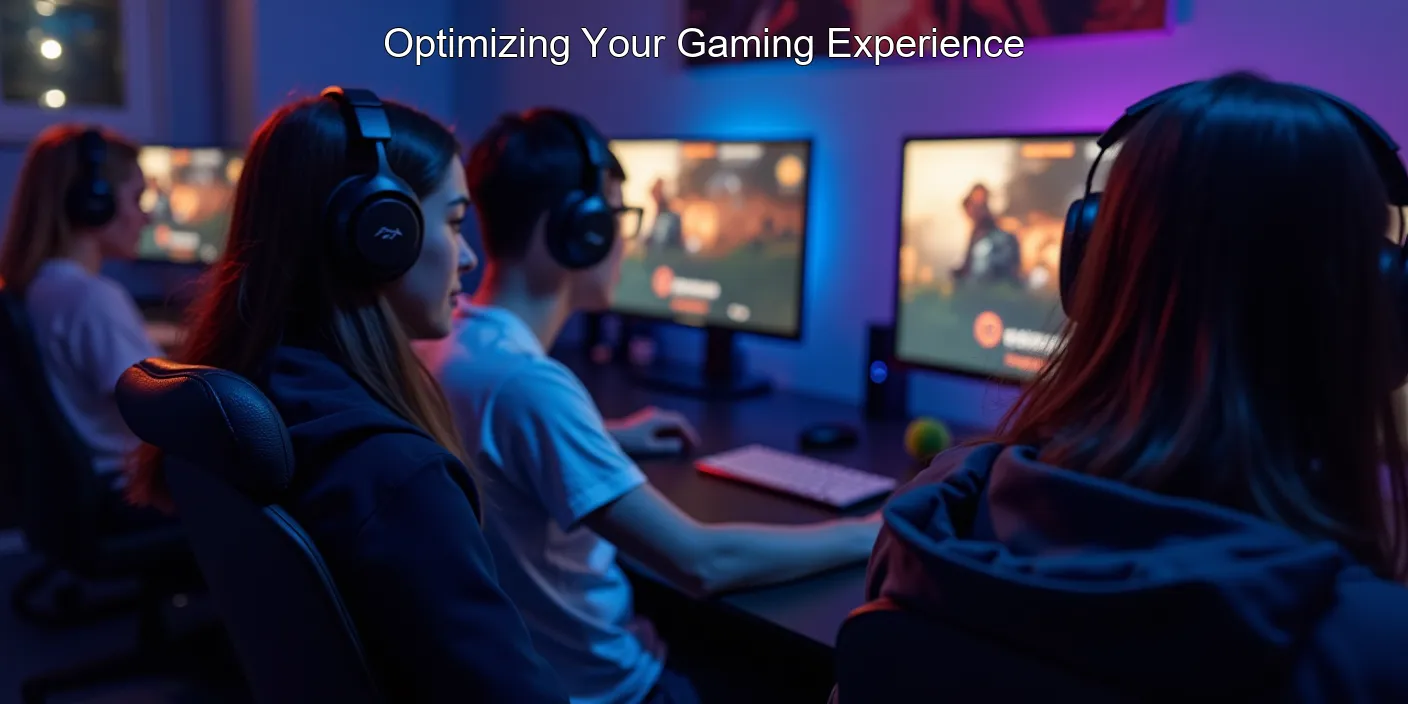
| Aspect | Recommendation |
|---|---|
| Monitor | 1440p, 144Hz refresh rate |
| Peripherals | Mechanical keyboard, gaming mouse |
| Audio | 7.1 surround sound headset |
Your gaming experience extends beyond just the PC itself. To truly immerse yourself in your favorite games, consider these additional factors:
“Mastering the Game: Beyond the PC – Key Elements for an Optimal Gaming Experience”
- High-refresh rate monitor for smoother gameplay
- Comfortable, responsive peripherals
- Quality audio setup for immersive sound
- Ergonomic chair for those long gaming sessions
- Proper lighting to reduce eye strain
“A great gaming setup is like a finely tuned instrument. Each component plays a crucial role in creating the perfect harmony of performance and comfort.” – Jane Smith, Esports Coach
FAQ: Enhancing Your Gaming Setup
Q: Do I need a gaming-specific chair?
A: While not essential, a good ergonomic chair can improve comfort during long sessions.
Q: Are gaming laptops a good alternative to desktops?
A: They offer portability but generally provide less performance per dollar compared to desktops.
Q: How important is internet speed for gaming?
A: Very important, especially for online multiplayer games. Aim for at least 25 Mbps download speed.
Best Practices for Maintaining Your Gaming PC
- Regularly clean dust from components
- Update drivers and software frequently
- Monitor temperatures to prevent overheating
- Organize cables for better airflow
- Perform regular virus scans and system maintenance
A study by TechRadar found that properly maintained gaming PCs can last up to 25% longer and maintain better performance over time compared to neglected systems.
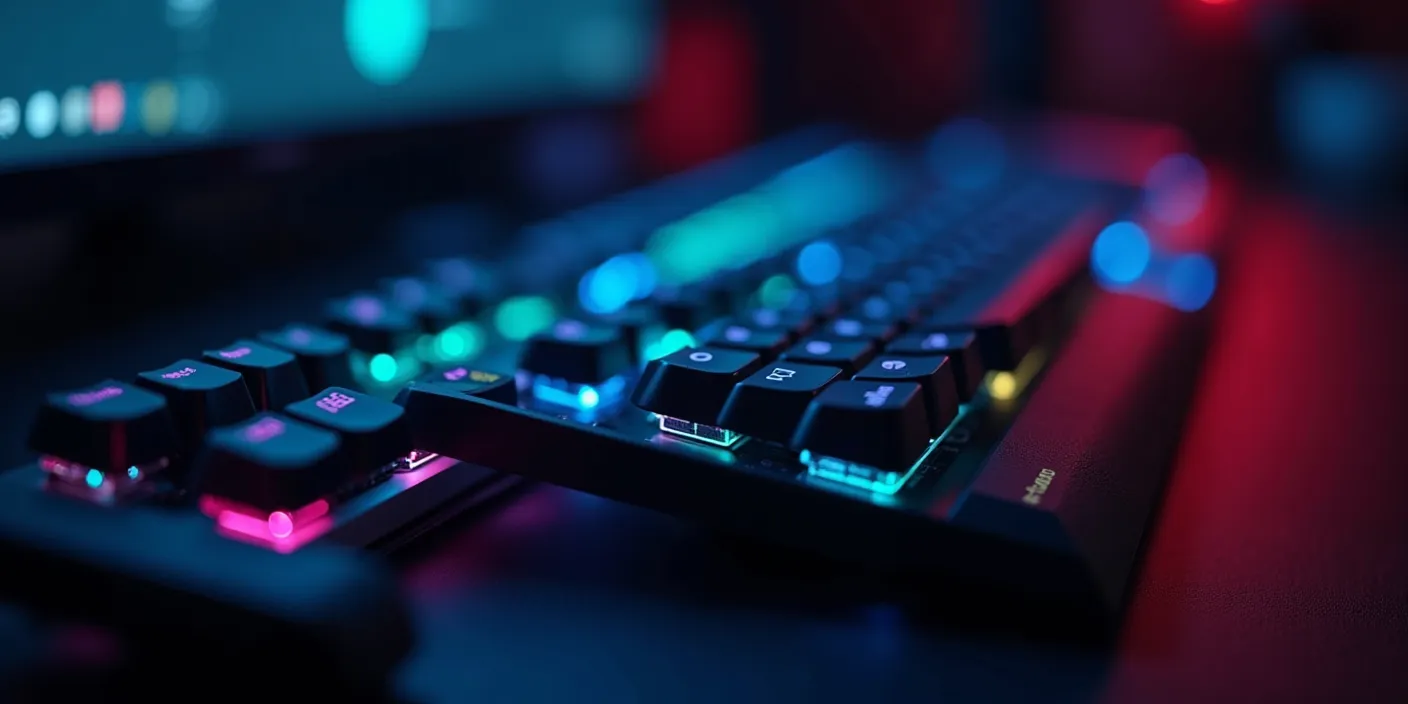
For the latest updates on gaming hardware and esports news, stay tuned to our dedicated section. If you’re looking to explore new titles, check out our game reviews for honest opinions on the latest releases. Need help mastering your favorite games? Our gaming guides have got you covered. And don’t forget to explore the exciting world of indie games for unique gaming experiences!



